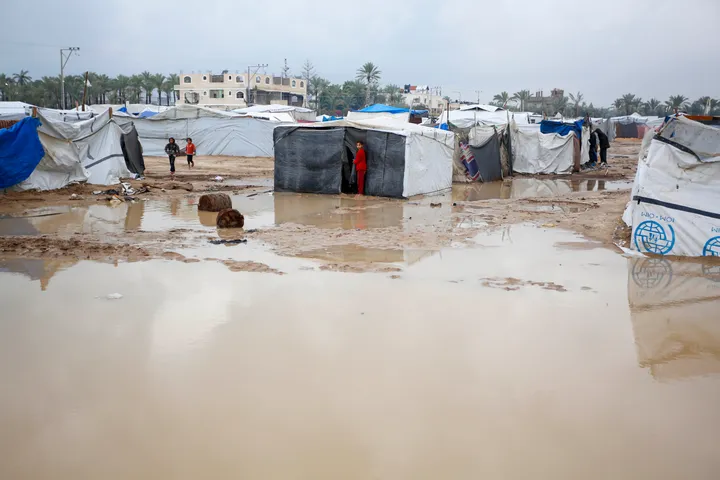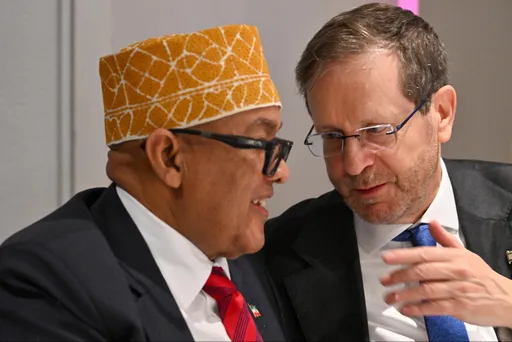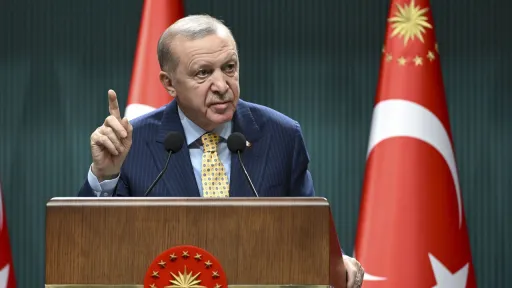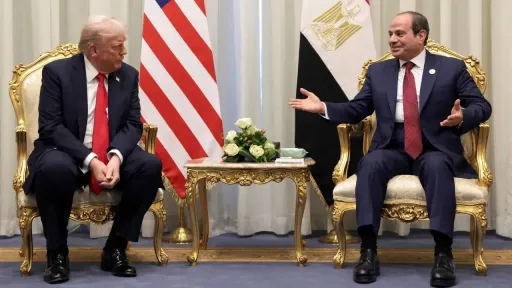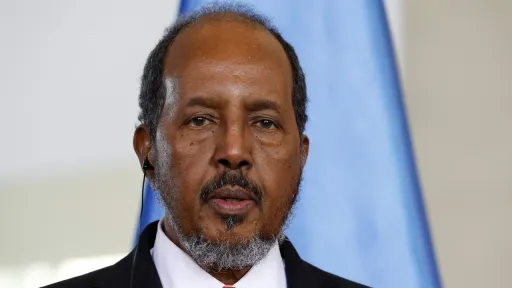October 7, 2023, is a day whose meaning and effects remain central to how the events of two years ago are interpreted, and whose occurrence continues to influence the present.
The event remains beset by controversy, unanswered questions, and disputed facts:
Should the attack be viewed primarily as an act of Palestinian resistance, harkening back to Israel’s refusal (and that of its supporters) to respect the outcome of the Hamas victory in the internationally monitored 2006 elections?
Or did the attack come as a response to prolonged repression under apartheid policies, including the harsh, arbitrary, and punitive siege described by prominent Western officials as ‘the world’s largest open-air prison,’ further aggravated by periodic Israeli military incursions in Gaza, causing civilian deaths and widespread destruction?
Or is October 7 best remembered as an unprovoked attack that exhibited the “barbaric nature of Hamas” and indeed of the entire Palestinian population of Gaza, as the Israeli President, Isaac Herzog, declared?
Or was Israel forewarned and allowed the attack to occur to create the staging ground for concluding the Zionist Project of ‘Greater Israel’ involving extending Israel’s territorial sovereignty to the Palestinian territories of Gaza, the occupied West Bank, and East Jerusalem, and in the process, inducing masses of terrorised Palestinians to leave and burying forever Palestine’s statehood aspirations?
Or, most conclusively, was Israel’s response to October 7 a genocidal campaign enacted in real time, revealing the complicity of leading liberal democracies of Europe and North America and the weakness of international law and the UN with respect to the enforcement of law and accountability of wrongdoers?
Against this uncertainty, one can trace the evolution of responses to October 7, shifting over time across international reactions to the ongoing violence and devastation, as well as the positions adopted by Israel, Hamas, the US, and its European partners.
Instead of the tensions between support for, and opposition to, Israel’s behaviour, the focus moved to a feverish search for a diplomatic outcome that achieves a ceasefire, prisoner exchanges, with assurances of impunity for the wrongdoers on both sides.
Whether this present stage will be remembered two years from now as the time genocide ended, or merely paused, is the haunting question that casts a dark shadow over current speculations.
Whether this present stage will be remembered two years from now as the time genocide ended, or merely paused, is the haunting question that casts a dark shadow over current speculations.
A tentative future seems linked to whether the US Government will support Israel’s formula for ending the conflict or whether it will use its leverage to seek an accommodation of the adversaries that constrains Israeli ambitions and supports Palestinian rights.
Reviewing salient developments from 2023 and 2025 may help illuminate this uncertainty.
Stage I: Months after October 7 - Israel gets the benefit of the doubt
Despite Israeli leaders, including Prime Minister Benjamin Netanyahu and former Defence Minister Yoav Gallant, using genocidal language in their immediate responses to the attack, the term ‘genocide’ was taboo in describing Israel’s actions.
Netanyahu invoked the Bible to justify responding to attacks on Jews as the ancient Israelites did against Amalek. That is, genocidally by killing every Amalek man, woman, and child, and even livestock.
Gallant declared, in these oft-quoted words of a decree issued on October 9: “I have ordered a complete siege on the Gaza Strip. There will be no electricity, no food, no fuel...We are fighting human animals and we’re acting accordingly.”
Given the indiscriminate devastation that followed, including targeting legally prohibited sites, like hospitals, schools, places of worship, and heritage, humanitarian delivery convoys, and UNRWA shelters, Gallant’s genocidal words of intent were reflected in the tactics employed.
Yet, on the world stage, Israel initially received the benefit of the doubt. Influential global media platforms and even civil society largely accepted the narrative of an unprovoked attack by a terrorist movement, supporting Israel’s claim for self-defence.
Minimal protests occurred during this grace period, and support from former colonial powers in Europe and allied nations reinforced Israel’s diplomatic position.
This ‘genocide honeymoon’ came to an abrupt end when the International Court of Justice (ICJ) affirmed its jurisdiction over South Africa’s submission alleging Israel’s violations of the Genocide Convention.
In a near-unanimous interim judgment, provisional measures were issued in March 2024. Israel’s defiance, reinforced by US official claims that the ICJ effort was ‘without legal merit’, spurred global protests and dissent from non-Western governments.
Stage II: ICJ/ICC decisions and ceasefire vetoes
As the immediate trauma receded from view with the passage of time, international concern shifted to the humanitarian crisis in Gaza and the ordeal being endured by the Palestinians, as well as the cruelty and lack of any credible claim that Israeli violence was connected with legitimate security concerns.
Increasing criticism of Israel sparked protests, particularly in countries supporting Israel, often met with anti-democratic governmental responses.
This delegitimation of Israel increased in the aftermath of the important 2024 ICJ Advisory Opinion on the legality of the occupation of Palestinian territories, with the proviso that the UN and its members had collective and individual legal responsibilities to implement the principal ruling that Israel, due to its violations of International Humanitarian Law, no longer had authority to administer the Palestinian territories, including Gaza.
The General Assembly accepted the ICJ ruling, giving Israel one year from the date of its resolution to withdraw its presence, which expired in September.
During this period, Israel’s legitimacy in the symbolic realm of law and morality weakened, a decisive factor in many settler-colonial contexts. Israel’s occupation was increasingly perceived through a settler colonial lens as committing genocide, and began to be regarded as a rogue or pariah state.
Stage III: The Pillay Report, Trump diplomacy, and the revival of post-October 7 mentality
Several developments in 2025 pushed the genocide along, with October 7 falling into a partial eclipse.
A UN Commission of Inquiry led by former High Commissioner Navi Pillay concluded in mid-2025 that Israel’s attacks in Gaza constituted genocide, complementing three reports by UN Special Rapporteur Francesca Albanese delimiting Israel’s settler colonial project and recourse to genocide.
The US responded in an unprecedented manner by sanctioning Albanese, barring her entry into the US to deliver her latest report, holding out against the genocide consensus by taking punitive action, itself seemingly unlawful punitive action against an unpaid UN truth-telling appointee.
The US also used its veto to block a UN ceasefire initiative, manifesting its increasingly unpopular role as Israel’s sole remaining overt supporter.
Meanwhile, US President Donald Trump also made a highly personal commitment to end the encounter in Gaza without alienating Israel, and secured the help of the Arab and Muslim majority countries in doing so.
The Trump approach offered significant security and territorial assurances to Israel while extending limited steps toward Palestinian governance and development. Central to the plan was a 72-hour deadline for Hamas to respond. For Hamas, this posed a difficult choice: the people of Gaza, already under immense pressure, could gain from cooperation, but rejection would almost certainly produce acute human suffering and a sense of desperation among surviving Palestinians.
It was a toxic dilemma that has been temporarily resolved in a dignified manner by Hamas. Israel, however, has continued air strikes, causing heavy casualties, perhaps reflecting divisions and ignoring Trump's pressure on Israel to curtail all military operations while the conflict-ending plan is being implemented
Although many changes have occurred since October 7, 2023, in all facets of the Israel/Palestine behaviour, four dysfunctional continuities cloud the prospects in the two years to come: US unconditional support of Israel, Palestinian exclusion from self-representation and denial of their right of self-determination, the consensus that the terrorist label fits the reality of Hamas, and the dehumanisation of Palestinians in Zionist ideology and apartheid structures of Israeli governance.
Only when appropriate adjustments of these issues are made will a revisionist interpretation of October 7 command the respect it deserves.




